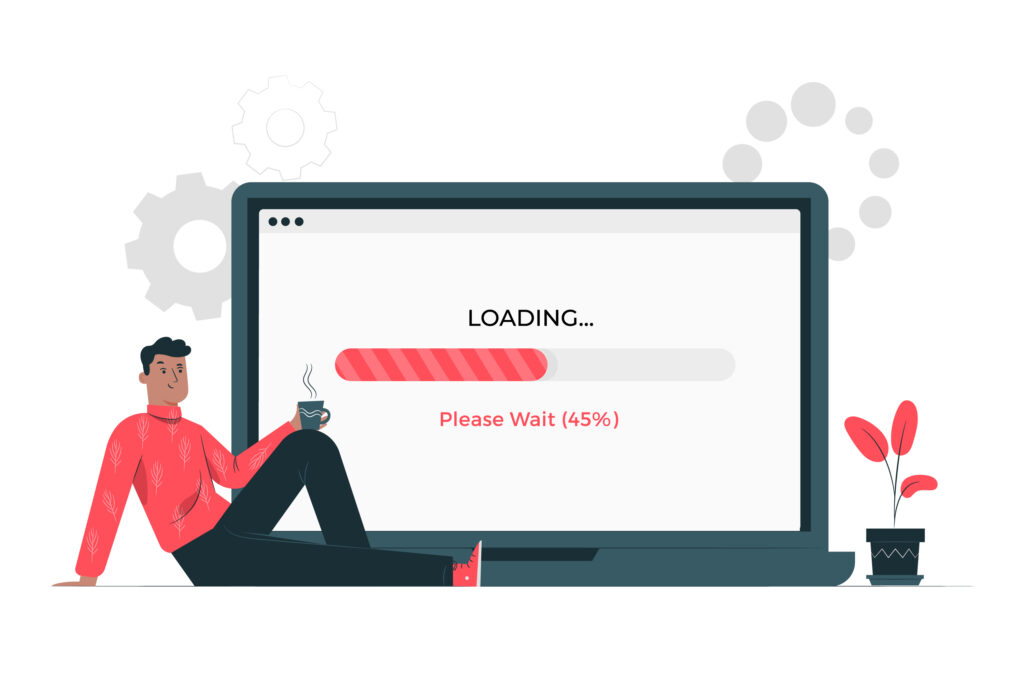Web Performance Optimization Solutions

In today’s digital age, a lightning-fast website is not just a luxury; it’s a necessity. Users expect websites to load almost instantly, and search engines prioritize fast-loading sites in their rankings. If your website takes too long to load, you could be losing potential visitors, customers, and revenue. This is where web performance optimization comes into play.
In this blog, we’ll discover the key strategies and techniques to speed up your website’s loading time and provide a seamless user experience.
Why Website Speed Matters:
Before diving into optimization techniques, let’s understand why website speed is crucial. Studies have shown that even a mere one-second delay in page load time can lead to higher bounce rates and lower conversion rates. Users get frustrated with slow-loading websites and stop visiting them. Furthermore, search engines like Google consider website speed as a ranking factor, meaning a slow site could end up lower in search results.
Measuring Website Performance:
The first step in optimization is to measure your current website’s performance. Tools like Google PageSpeed Insights, GTmetrix, and WebPageTest provide valuable insights into your website’s loading time, performance scores, and suggestions for improvement. These tools identify specific areas that need attention, helping you pinpoint where to start your optimization efforts.
Optimization Techniques:
Optimize Images:
Images often account for a significant portion of a webpage’s loading time. Use appropriate image formats (JPEG, PNG, and WebP) and compress them without sacrificing quality. Implement lazy loading to load images only when they come into the user’s viewport.
Minimize HTTP Requests:
Each element on your webpage, including images, stylesheets, and scripts, triggers an HTTP request. Reduce the number of requests by combining CSS and JavaScript files, using CSS sprites, and eliminating unnecessary elements.
Browser Caching:
Use browser caching to store static resources locally in a user’s browser. This allows returning visitors to load your site faster, as their browsers won’t need to download all resources anew.
Content Delivery Network (CDN):
A CDN distributes your website’s content across multiple servers worldwide. This reduces latency by serving content from a server closest to the user, enhancing loading speed.
Minify CSS and JavaScript:
Minification involves removing unnecessary whitespace and comments and reducing code size. This improves the download and execution speeds of CSS and JavaScript files.
Optimize Server Performance:
Choose a reliable and fast web hosting provider. Ensure your server is properly configured and optimized for the specific needs of your website. Implement server-side caching techniques to reduce processing time.
Reduce Third-Party Scripts:
While third-party scripts can add functionality, they can also slow down your website. Evaluate which scripts are necessary and consider asynchronous loading to prevent them from blocking other content.
Mobile Optimization:
With a significant portion of internet users accessing websites on mobile devices, mobile optimization is paramount. Implement responsive design, use media queries, and prioritize above-the-fold content to ensure a smooth mobile experience.
Regular Monitoring and Updates:
Website optimization is an ongoing process. Regularly monitor your website’s performance, analyse new suggestions from performance tools, and stay updated with industry best practices to ensure your site continues to load quickly.
Conclusion
A fast-loading website is a crucial asset in today’s digital landscape. By implementing the strategies and techniques outlined in this blog, you can significantly improve your website’s loading time, enhance the user experience, and boost your search engine rankings. Remember that web performance optimization is an ongoing journey, so stay consistent and keep refining your site’s performance to meet and exceed user expectations.
Recent Posts
 Essential Tips for Optimizing Your Ecommerce Website
Essential Tips for Optimizing Your Ecommerce Website
 SEO Role In Driving Organic Traffic To Your E-commerce Website
SEO Role In Driving Organic Traffic To Your E-commerce Website
 Navigating Search Engine Indexing: A Guide to Robots.txt and Meta Robots Tags
Navigating Search Engine Indexing: A Guide to Robots.txt and Meta Robots Tags
 Why XML Sitemaps Are Important For Google Indexing?
Why XML Sitemaps Are Important For Google Indexing?
 Common Google Indexing Problems and Solutions
Common Google Indexing Problems and Solutions
 The Future of AI in Business: Unlocking Opportunities for Automation and Innovation
The Future of AI in Business: Unlocking Opportunities for Automation and Innovation
 Overcoming Common SEO Mistakes that Hinder Keyword Ranking Progress
Overcoming Common SEO Mistakes that Hinder Keyword Ranking Progress
 The Basics of Keyword Research: Finding the Right Keywords for Your Website
The Basics of Keyword Research: Finding the Right Keywords for Your Website